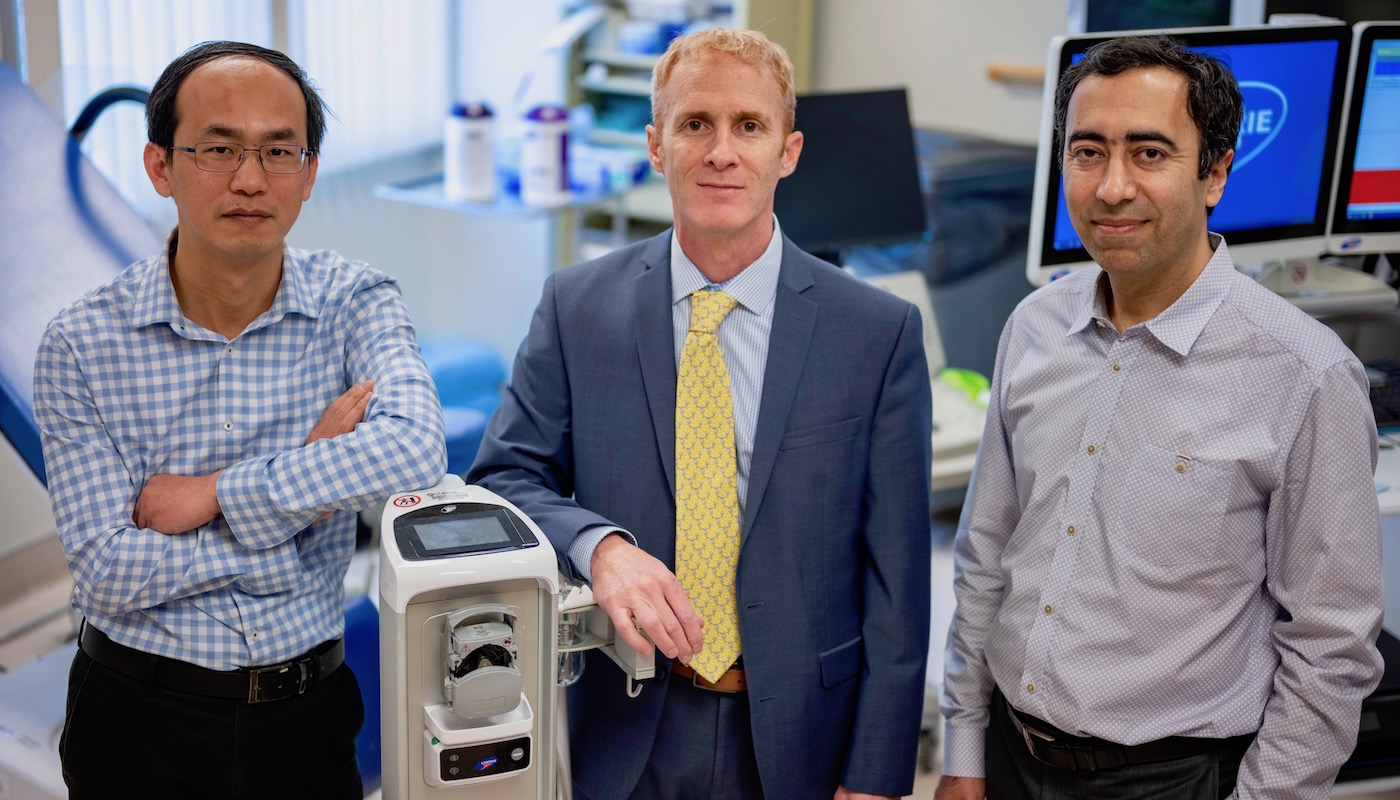Wearable Device Assists People with Spinal Cord Injuries

Two of our members, Soheil Ghiasi and Lifeng Lai, both professors in the Department of Electrical and Computer Engineering, have been working with Eric Kurzrock, chief of Pediatric Urologic Surgery and a professor in the UC Davis Department of Urologic Surgery and Pediatrics, to develop an under-clothing biosensor that can recognize in real time when someone’s bladder is full. Most people take that kind of biological awareness for granted, but it is lacking for the approximately half a million individuals in the United States with spinal cord injuries or spinal anomalies.
Although it is being designed for people with spinal cord injuries or anomalies, it may have broader applications as well. Additional health conditions that can affect bladder function include diabetic neuropathy, Parkinson’s disease, Alzheimer’s disease and multiple sclerosis.
